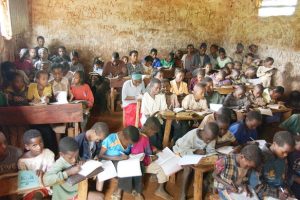BY MENGISTEAB TESHOME
Civic society organizations have a lot of contribution in the endeavor made to build a democratic, transparent and accountable system. At the same time they play substantial role in ensuring that all pertinent stakeholders as well as the government remain committed to protecting democracy and human rights.
It is clear that elections provide a means by which competition in society can be channeled into a constructive process with common rules to choose representatives of the people. Robust democratic institutions are usually assumed as the ultimate guarantor for social peace.
However, since electoral processes are intrinsically about the attainment of political power, often in high-stake contexts, elections – as a process of competition for power-can be catalysts of conflict.
To keep the conflicts at bay, civil society organizations (CSOs) could help to bridge the gap in a more constructive manner following the accepted standards and procedures nationwide.
Prime Minister Abiy Ahmed recently has deliberated the upcoming national election with federal and regional leaders of the country. It was learnt that the leaders have established a defining line not to mix government and party work.
“This morning I held discussions with federal and regional leadership on the upcoming elections where we established a defining line to not mix government and party work,” the Premier twitted on his page.
According to PM Abiy, the clear role of government is to ensure that peaceful, free and fair elections take place in this highly anticipated round.
It is with that spirit that regional governments have also made commitments to support competing political parties in effective participation, he added.
The Ethiopian Herald approached Debebe Hailegebriel, Private Attorney and Legal Consultant, to share readers how the civil society organizations play a role in letting democratic, fair and free election is carried out in the upcoming election, the 6th round national election, which was postponed due to the outbreak of Coronavirus and scheduled to be May 2021.
It is clear that election is part of the political process in democracy and every political system holds election as a symbol of democracy.
He noted that civil society organizations are dealing with a wide range of issues — such as supporting in the development of fair democratic system, women’s empowerment, legal reform, human rights, civic education, governance and rights for persons with disabilities (PWDs) to ensure more democratic atmosphere. They also play a constructive role in letting citizens learn about civic and ethical education.
This enables citizens to make sound decisions based on knowledge and help them refrain from any kind of illegal activities that could harm the coexistence of the communities.
In this process, the civil society organizations should keep their neutrality, and work in transparent ways starting from registration to the final day of result announcement.
“I believe this helps in ensuring the reach to the desired outcome in these processes; many institutions and civil society organizations could help develop citizens’ knowledge and skills and shape their civic character and commitments in the election.
In building the culture of civility among societies, family, religious institutions, the media, and community groups should also exert important influences to ensure free election, he added.
To this end, schools bear special and historic responsibility for the development of civic competency and civic responsibility as schools fulfill that responsibility through both formal and informal education beginning in the earliest years and continuing through the entire educational process.
Civil society organizations should also partake in voter education because it makes clear how they could manage. He also noted that it takes part in observing the election voting days and making sure each observer is neutral.
In bid to ensure free, fair, secure and safe election, these organizations should also engage in managing electoral violence scenarios and help political parties accept results from the National Electoral Board.
At the same time, they can work in restoring peace and stability among communities in established fashion with workable strategies in consort with pertinent stakeholders ranging from the international communities to the low structure religious and clan leaders.
What is more, Debebe also said, “Since we are in the middle of the global pandemic, COVID-19, political rallies and meetings should be inspected the way they are conducted in line with the guidelines set by the Ministry of Health and WHO to protect citizens from the global pandemic.
The Ethiopian Herald March 4/2021





